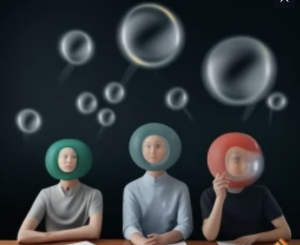Can we ever be as cool in real life as we are on text?
We all know that teenagers text—a lot. But as the mother of a teenager, I am sometimes shocked by how much a lot can be, and more to the point, the impact that all this texting, virtual relating, is having on our children’s real life relationships. Many young people are now experiencing their first “romantic” relationship on their phones. Teenage couples begin texting each other intimately and voraciously often before they are even friends, texting things to each other that they would never (ever) say in person. Having a real life relationship with your boyfriend is no longer a prerequisite for having a virtual relationship with him.
These days, when a girl says she is “dating” someone, it generally means that she has someone with whom she texts around the clock. It doesn’t however, mean that she talks to that person more (or at all) in real life. It is not uncommon for a girl to have a boyfriend whom she never actually talks to in person but spends most of her day texting with. Being part of a couple also doesn’t mean that you do anything in the world together, like go for ice cream or see a movie.
On their own, texting relationships might not seem like a big deal, but the problem that they create is indeed a big deal. Virtual relationships stunt real relationships (and the skills they require). The pseudo intimacy of the texting relationship preempts real intimacy, which then creates a divide that is difficult to cross. The virtual romance happens at a pace and rhythm and with a hipness and ease that has little to do with real life romance or, for that matter, the emotional maturity of teenagers. And furthermore, the closeness that has transpired over text becomes imprisoning; what has been experienced in the device is not appropriate to the real-life relationship, which then becomes reason to avoid one other in actual life. The real relationship not only can’t catch up with the virtual relationship, but also becomes its hostage.
This is not just a young person’s issue. Adult relationships are also getting caught in the chasm between virtual and actual reality. After a first or second date, it is common for would-be couples to begin texting with a frequency, casualness, and intimacy that doesn’t fit the level of the relationship; they share their thoughts, feelings, and everyday experiences as if communicating with a best friend or maybe more accurately, a part of themselves. They share their lives, as well, without the discomfort or effort that a phone call or in person exchange might require. This false and immediate intimacy then impedes the possibility of the relationship blossoming into something more real as the connection gets waylaid in a kind of texting purgatory: a fast-paced, uber cool, pseudo-sexy, nowheresville.
It’s also not just romantic relationships that are being transformed as texting becomes the first language of human relationships. In some friendships, even those that are long-term, texting allows for a creative, exciting and newfound conversational dance, a verve that is often not possible in the face to face familiarity. So too, texting feels easier and less stressful than real life relating; the conversation pauses or ends when we want it to and can happen in bite size, manageable chunks, with no awkward silences. Texting relationships feel in our control while real relationships often don’t; we can be who we want in text relationships but not always in real ones.
I know people who now get anxious when they meet their friends in real life because they feel that the actual interaction can’t possibly be as fun or entertaining as the text exchanges. As one woman expressed, I can’t be as fabulous in person as I am on text. And our friends can’t be as fabulous either, which means that the whole real life relating experience can become a kind of disappointment—ultimately lacking what the texting relationship can offer. Once again, the real can’t compete with the virtual.
I wonder, will the gap between our virtual and real life relationships grow so wide that we will opt to give up real life relationships altogether. Will there come a time when we no longer even pretend to want or need face to face interaction? With the help of procreation technology, will future generations consider romance and courtship to be activities that happen entirely inside their devices?
The larger problem is that virtual relationships don’t nourish us in the same way that real life relationships do. After a full day of connecting through our phone, we don’t feel connected, satisfied and heart-full in the same way that we do after physically sharing a meal or taking a walk with someone. We integrate interactions in which we share a physical space differently than we do those that happen in our phone; we absorb them at a deeper and more cellular level. Our real life relationships change us in ways that our virtual relationships do not.
I hope that our children don’t forget what real life relating feels like, or one day believe that texting offers the full expression and rewards of human connection. I hope that future generations will not forego real relationships just because their virtual relationships may feel sexier, easier, cooler, and, in the short term, more pleasurable. It is, after all, through the real and sometimes more challenging aspects of face to face relating that we build social skills, emotional intelligence, empathy, and character, and consequently, reap the nourishment and satisfaction that real life human relationships provide.


